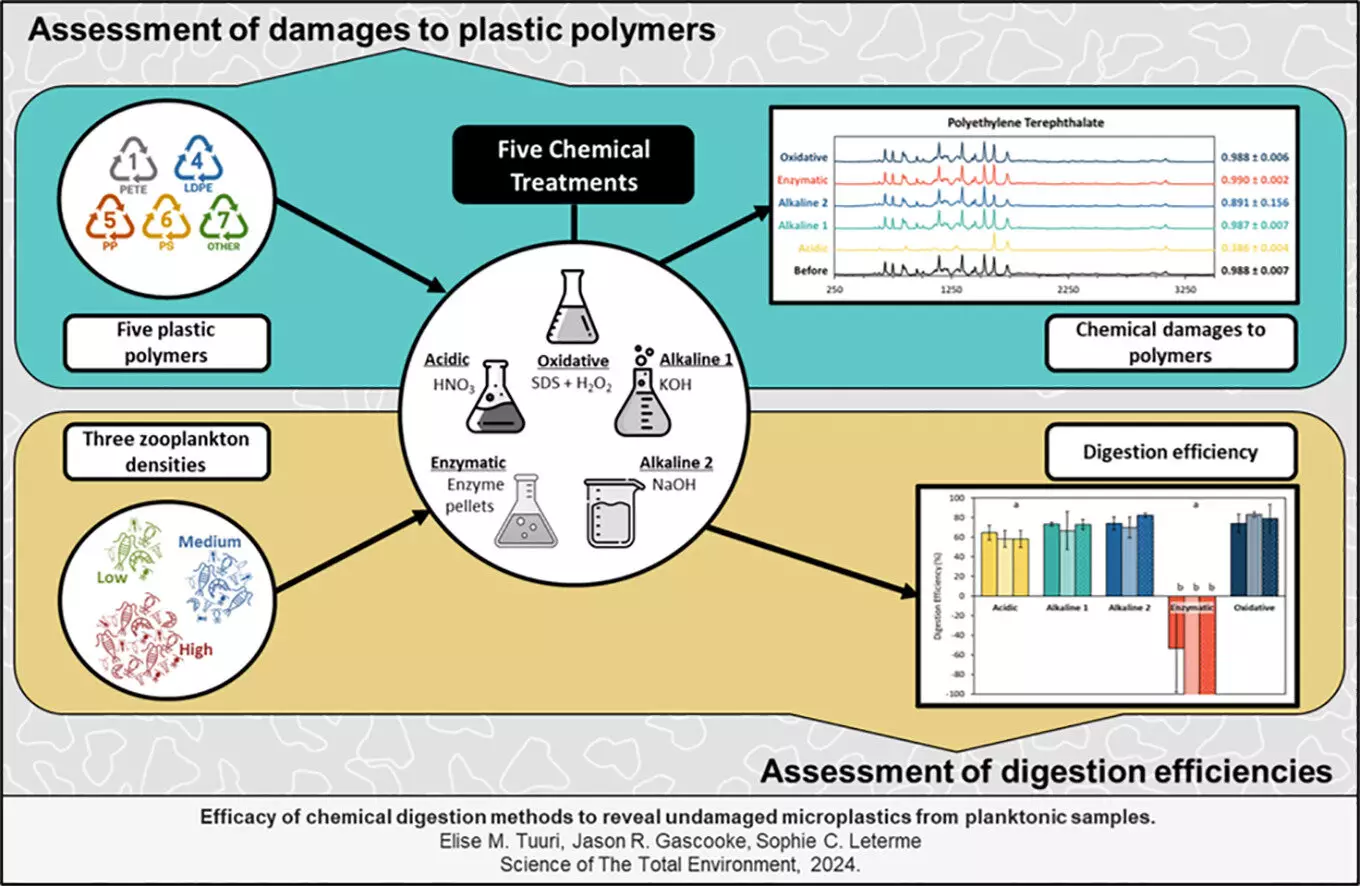The emergence of microplastics in marine ecosystems has triggered alarm bells among scientists and environmentalists alike. Microplastics, tiny plastic particles measuring less than 5mm, have infiltrated every corner of the ocean—from the surface waters to the deep-sea beds. This pervasive pollution not only poses risks to marine life but also threatens human health through the seafood we consume. With the world’s production of plastic skyrocketing from 2 million metric tons in 1950 to a staggering 380 million metric tons in 2015, the urgency to address plastic pollution and its ramifications on marine environments is palpable. Researchers from Flinders University have engaged in critical studies that examine the effects of microplastics on zooplankton, a vital component of marine food webs, illuminating a path toward potential solutions.
The Flinders University research team has embarked on a significant investigation focusing on how various chemical digestive aids interact with different types of plastics. By conducting controlled experiments using cultured zooplankton, the researchers evaluated the impact of five chemical agents: two alkaline solutions, an acid, enzymatic, and oxidative. This innovative approach allowed for a deeper understanding of how microplastics degrade and affect marine organisms. The results showcased varying degrees of damage to the physical and chemical structures of well-known pollutants, such as polyethylene and polystyrene commonly found in marine environments. These insights are crucial, as they lay the groundwork for policymakers and scientists to formulate effective monitoring systems to evaluate microplastic contamination levels accurately.
Zooplankton, often overlooked, play a critical role in marine ecosystems as primary consumers. Their health and well-being are directly linked to the overall vitality of marine habitats. The ingestion of microplastics by these organisms can lead to serious consequences, not merely impacting the zooplankton themselves but cascading up the food chain. As they become part of the diet for larger marine creatures, including fish and shellfish, the potential for contamination escalates, raising concerns over seafood safety. The Flinders University study emphasizes the urgent need to understand the association between microplastics and zooplankton, paving the way for mitigating adverse effects on marine biodiversity.
As our understanding of microplastic contamination expands, so does the opportunity to develop strategic frameworks to combat this environmental crisis. The research conducted at Flinders University is pivotal in filling the data gap concerning microplastic abundance. According to Professor Sophie Leterme, co-author of the study, systematically reporting microplastic concentrations can significantly inform future environmental policies and health safety protocols. The knowledge gained can aid in crafting effective strategies to address and reduce marine pollution, focusing efforts on the most significantly impacted areas.
The findings from the Flinders University research highlight the critical intersection of science, environmental policy, and public health in tackling the issue of microplastics in our oceans. As the production of plastics continues to rise, the challenge looms larger than ever, necessitating a comprehensive response that combines innovative research, public engagement, and robust regulatory frameworks. Solving the microplastic problem demands cooperation among scientists, policymakers, and the community at large as we strive to safeguard our oceans and, by extension, our health. Through continued research and proactive measures, we can hope to mitigate the extensive damage being wrought upon marine ecosystems worldwide.

